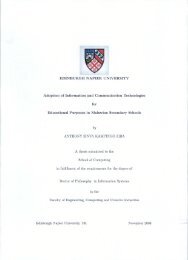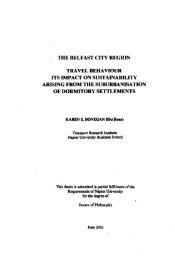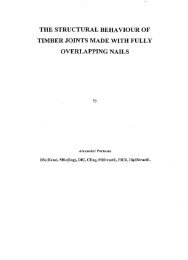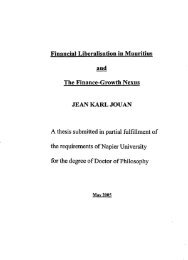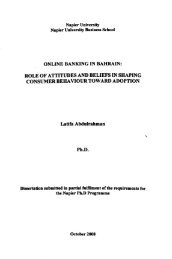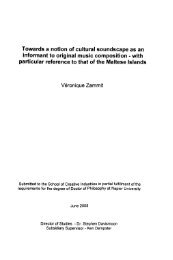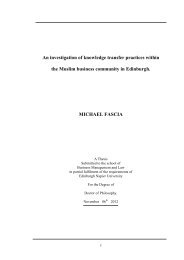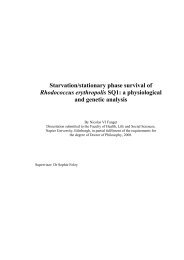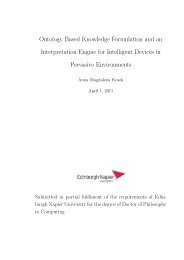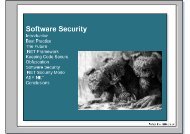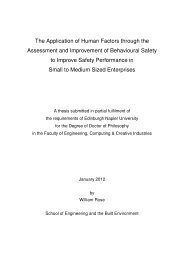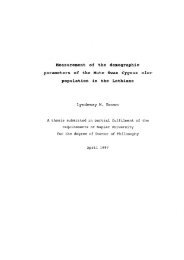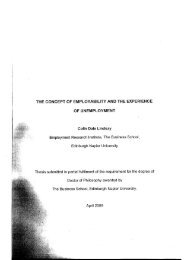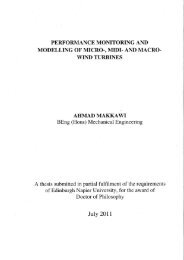The Role of Niche Tourism Products in Destination - Repository ...
The Role of Niche Tourism Products in Destination - Repository ...
The Role of Niche Tourism Products in Destination - Repository ...
You also want an ePaper? Increase the reach of your titles
YUMPU automatically turns print PDFs into web optimized ePapers that Google loves.
esearch agenda. Paper 13, contributes to the limited work on festival cities and its significance lies <strong>in</strong> the identification <strong>of</strong> a clear<br />
gap between the awareness <strong>of</strong> the importance <strong>of</strong> the use <strong>of</strong> image as a strategic dest<strong>in</strong>ation management tool and the<br />
measurability <strong>of</strong> its effects. Festivals are enabl<strong>in</strong>g factors, but cannot be the sole image provider and must be seen with<strong>in</strong> the<br />
complex array <strong>of</strong> other attractions at the dest<strong>in</strong>ation. This research can also be seen as a key response to Garcia’s (2005)<br />
comment on the disparate nature <strong>of</strong> academic and pr<strong>of</strong>essional study which has not appropriated a clear conceptual framework for<br />
analys<strong>in</strong>g festival and events.<br />
Paper 7 develops this conceptual framework <strong>in</strong>to the ACCESS research agenda. Pasanen et al. (2009) reference ACCESS <strong>in</strong> their<br />
evaluation <strong>of</strong> standardised measures for event evaluation, cit<strong>in</strong>g its benefit as a research method for collect<strong>in</strong>g secondary data by<br />
<strong>in</strong>terview<strong>in</strong>g event organisers. <strong>The</strong>re is a grow<strong>in</strong>g recognition <strong>of</strong> a need for a holistic framework that can assess event impacts,<br />
beyond purely economic ones, and this has led to the author’s <strong>in</strong>put <strong>in</strong>to a subsequent research project <strong>in</strong> this area (Pasanen et al.,<br />
2009; Robertson et al., 2009). Robertson et al. (2009) identify the need for further research <strong>in</strong>to stakeholder needs, roles and their<br />
perceptions <strong>of</strong> event impacts. This is addressed <strong>in</strong> some <strong>of</strong> my recent collaborative research <strong>in</strong>to festival and event stakeholder<br />
management (Paper 9). It is evident from the literature that festivals have a key role to play <strong>in</strong> attract<strong>in</strong>g niche markets and<br />
transform<strong>in</strong>g dest<strong>in</strong>ations. Festival managers, however, as key stakeholders need to be aware <strong>of</strong> their <strong>in</strong>put <strong>in</strong>to this process.<br />
F<strong>in</strong>ally, festivals are seen as a form <strong>of</strong> cultural capital that will help to develop and regenerate the host dest<strong>in</strong>ation. This is evident <strong>in</strong><br />
Paper 12, where through a case study approach; the benefits <strong>of</strong> w<strong>in</strong>e festivals <strong>in</strong> economic and social terms are evaluated. <strong>The</strong> key<br />
contribution here is the suggestion <strong>of</strong> the significant role that festivals have <strong>in</strong> facilitat<strong>in</strong>g and celebrat<strong>in</strong>g rural rejuvenation and<br />
transformation. Beverland et al. (2001) comment how regional w<strong>in</strong>e festivals are rarely exam<strong>in</strong>ed and Yuan et al. (2005) note that



